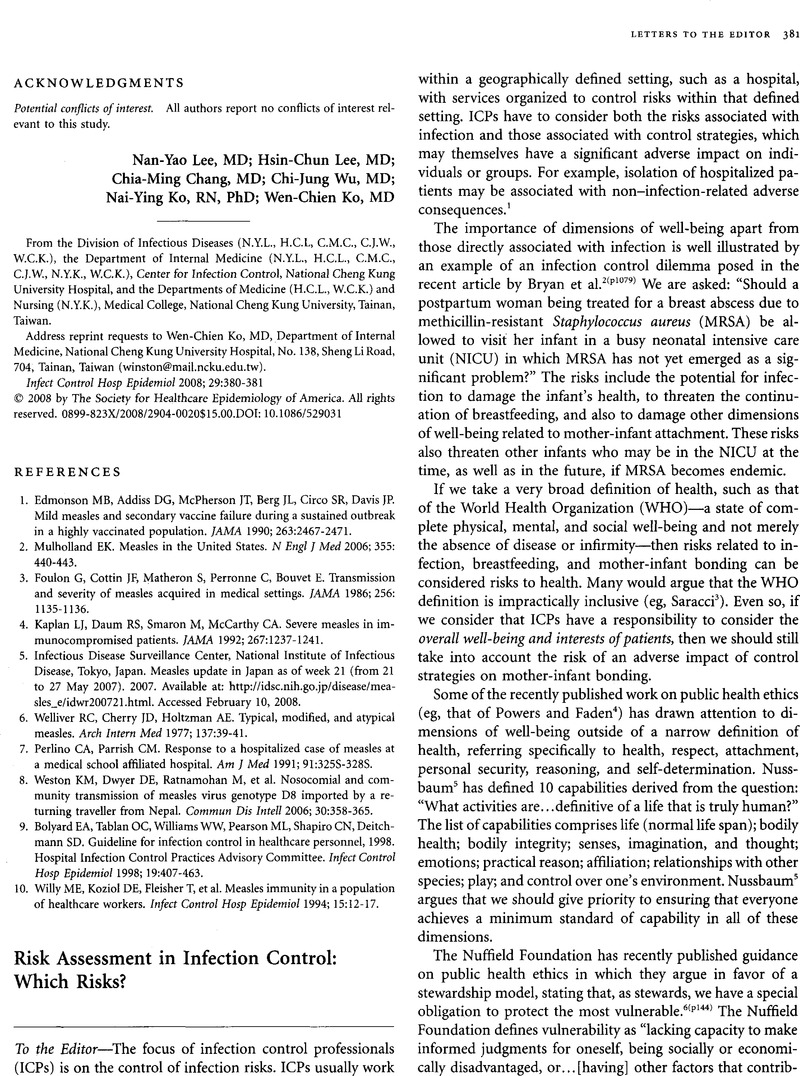Crossref Citations
This article has been cited by the following publications. This list is generated based on data provided by Crossref.
Millar, M.
2009.
Infection control risks.
Journal of Hospital Infection,
Vol. 71,
Issue. 2,
p.
103.
Lindsay, Simon
2011.
Scientific Literacy Under the Microscope.
p.
3.
Millar, M.
2011.
Patient rights and healthcare-associated infection.
Journal of Hospital Infection,
Vol. 79,
Issue. 2,
p.
99.



